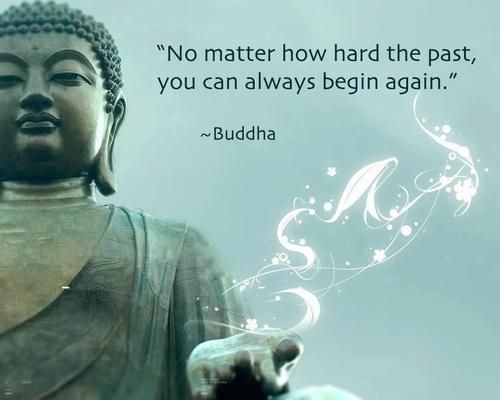How Can I Change My Mind?
Change Your Relationship With Your Thoughts
Identify Your Core Desire & Establish A Clear Point Of Focus

Can I Change My Mind?
The obvious answer to the: "Can I change my mind?" question is "Yes!"
The less obvious answer to the follow-up question: "Do you really want to change your mind?" is most probably "No!"
Your mind is either working for you or, more typically, working against you and the reason for this inner resistance is that there is a part of your mind that is very happy with how things are and doesn't want to change.
For this reason, any attempt at personal change is most likely doomed to failure because the source and nature of this inner resistance is unconscious.
So the first challenge is figuring out what exactly is going on in your unconscious mind and then secondly knowing how to deal with that resistance in such a way that your unconscious mind starts working for you rather than against you.
How Can I Change My Mind?
This whole site is about learning how to think effectively and the precursor to that is learning how to not think, because:
- A quiet mind is an insightful mind and a resourceful mind.
- A quiet mind makes visible the autonomic and repetitive cycle of your thoughts, reactions and responses
The purpose of this article is to provide you with a framework or mental model to enable you to successfully address the "can I change my mind" question.
This framework involves 4 key stages and 10 steps within these stages.
Step 2. Changing Your Relationship With Your Thoughts
As a result of your mindfulness practise you will very soon begin to see:
1. The repetitive nature of these thoughts
2. The triggers that give rise to these thoughts
3. The energetic states associated with these thoughts
The key take-aways from this step are understanding that:
- What matters is not the content of your thoughts but your relationship with your thoughts.
- These repetitive negative thoughts are a certain short-cut [or as I refer to it ”the ferris wheel of suffering”] to the
underlying negative emotional states and that are repetitively creating negative results in our lives.
Step 3. Living With Your Thoughts
The key to living with your thoughts is to develop a good working relationship with your mind and to have the tools, techniques and resources that work with all levels of your mind.
The objective is to have them all levels of your mind working together and moving you in the same direction, and at the same time!
Here are a range of tools and resources for enable you to successfully live with your thoughts
[2] How Can I Change My Mind - THE CHANGING STAGE
Step 4. Identify Your Core Desire
Unless your desire to change is greater than your powerful and deep-seated desire to keep things as they are, then I'm sorry to burst your bubble, but it isn't going to happen!
Your good intentions are going to end up in the waste bin alongside a lifetime's failed resolutions to change.
So, I ask you:
"Why do you want change your mind, your life...why do you want to change?"
So, to be clear, your core desire is that thing you want so badly that you
will do or become whatever it takes to get it, no matter how hard it
is or what the risk or expense is.
Here are 3 key steps to accurately identify your core desire.
Step 5. Establish Your Point Of Focus
Your point of focus is either helping you or hindering you.
We live in an energetic universe and it's not neutral, it is also a participative universe.
Over time, what you focus your mind on becomes your reality.
What is your point of focus? Is it aligned with your core desire?
6 Key guidelines to maintain your point of focus
[3] How Can I Change My Mind - THE REINFORCING STAGE
Step 6. Change Your Language – Understanding The Impact Of Framing
The choices of words that we use have power because of the underlying
emotional associations that they invoke and the actions that result from
those associations.
This applies as much to our inner dialogue as it does to the words we use in everyday speech.
Framing
is about how we define context, make associations, establish reference
points and emotional touch points all designed and positioned to convey
the sense and meaning that we want to convey.
There is a direct causal link between how we think about a situation,
the words we use to articulate those thoughts, the energetic state
associated with those words, and the results we create.
Change Your Language To Change Your Results
Step 7. Watch The Company You Keep
As Jack Canfield (and others) has said:
"You are the average of the 5 people you spend the most time with."
There are so many ways that we are affected by other people's emotions.
We are emotional/energetic beings living in an energetic universe that responds to our dominant energetic state in the experiences that we create and attract.
5 Steps you can take to protect yourself from the tidal swirl of other people's emotional turbulence.
Step 8. Understand How To Compound The Efficiency Of Your Habits
Habits are efficient and enable us to perform thought processes and behaviours without wasting time and energy figuring out what to do, and they do not require your conscious attention.
- Habits will sustain you, maintain you or undermine you.
- Good habits can give you an advantageous divergence from the herd.
- Small habits make a big difference over the long-term
Habits are the compound interest of self-improvement
[4] How Can I Change My Mind - THE ONGOING STAGE
Step 9. Focusing On HOW Not WHAT To Think
Acquiring and practising effective thinking skills is especially relevant in the current age of unreason.
You are seeking to change your mind in an environment where:
- Experts are denigrated and ignorance, bias and prejudice is celebrated;
- Woke thinking takes precedence over reasoned debate;
- Virtue signally takes precedence over private philanthropy;
- Intelligent discussion and agreement to disagree and respect for other shades of opinion are denied in the current cancel culture;
- Public debate is hijacked and taken over by group think and mob rule.
I
would suggest that alongside the practise of mindfulness and learning
how to not think, a continuous commitment to developing and improving
your thinking skills is of paramount importance to counter the
prevailing cognitive distortions to which we are continually exposed.
Step 10. How To Experience The Benefits Of Transformation By Renewing Your Mind
Renewing your mind is based on practices, not beliefs, that will have a profound and positive effect on your life.
This takes work and effort. The human mind runs on deeply ingrained and habitual patterns of thought.
Neural pathways in your brain get stronger with repetition and you will be training your brain to establish new pathways through new activities, new patterns of thought, and new behaviour.
Here are a series of "How To?" articles with practises and resource to help you continue with the ongoing transformation of your mind.
Return from "Can I Change My Mind" to Home Page
LATEST ARTICLES
Dealing With Distraction - Learning How To Live With Your "Attention Autopilot"
 Living With Your Attention Autopilot The good news about your Attention Autopilot is that it will keep you safe. It is continuously scanning your immediate environment for threats. The bad news is tha…
Living With Your Attention Autopilot The good news about your Attention Autopilot is that it will keep you safe. It is continuously scanning your immediate environment for threats. The bad news is tha…The Time Of Your Life - Recognising Moments Of Alignment For Action
 How will you recognise your moment of alignment for action? In this article I want to look at our relationship with time and in the context of the two main themes of this site, firstly as a thinking s…
How will you recognise your moment of alignment for action? In this article I want to look at our relationship with time and in the context of the two main themes of this site, firstly as a thinking s…The Metagame Approach to Second Order Thinking - 5 Guiding Principles
 How To Position Yourself For Survival & Success In A Complex Environment We treat life as though it is a complicated system, and our thinking skills and mental models are focused on understanding its…
How To Position Yourself For Survival & Success In A Complex Environment We treat life as though it is a complicated system, and our thinking skills and mental models are focused on understanding its…Outcome Over Optics - Long Game Outcomes Over Short-Term Ego Gains
 The Day I Learned To Focus On Outcome Over Optics I have never forgotten the day I learned to focus on outcomes over optics and figured out a very simple way of saving myself several hundred thousand…
The Day I Learned To Focus On Outcome Over Optics I have never forgotten the day I learned to focus on outcomes over optics and figured out a very simple way of saving myself several hundred thousand…The ETTO Principle - Why Near Enough Can Be Good Enough
 How To Balance the Efficiency-Thoroughness Trade Off The ETTO Principle describes the inherent trade-off between working efficiently and working thoroughly. This trade-off is something that affects…
How To Balance the Efficiency-Thoroughness Trade Off The ETTO Principle describes the inherent trade-off between working efficiently and working thoroughly. This trade-off is something that affects…Master The Art Of Drawing The Bow
 Focus On Process Not Outcome In so many areas of our lives, we focus on the outcome, not the process that we follow to achieve it. In the western world, we are conditioned to pay less attention to how…
Focus On Process Not Outcome In so many areas of our lives, we focus on the outcome, not the process that we follow to achieve it. In the western world, we are conditioned to pay less attention to how…And So This Is Christmas
 There Is No Path To Peace - The Path Is Peace Thich Nhat Hanh, the renowned Vietnamese Zen Buddhist monk, teacher, and peace activist, often spoke about peace as a state of being that begins within on…
There Is No Path To Peace - The Path Is Peace Thich Nhat Hanh, the renowned Vietnamese Zen Buddhist monk, teacher, and peace activist, often spoke about peace as a state of being that begins within on…Curiosity Skilled The Cat - Optimize For Interesting
 Curiosity Fuels Excellence The old adage, “Curiosity killed the cat,” warns of the dangers of venturing too far into the unknown. But what if we reimagine it not as a risk but as a gateway to developi…
Curiosity Fuels Excellence The old adage, “Curiosity killed the cat,” warns of the dangers of venturing too far into the unknown. But what if we reimagine it not as a risk but as a gateway to developi…Let Stillness Speak - Living Within A Complex System
 To let stlllness speak is to learn it's first major lesson: you are not your thoughts. To let stillness speak is about stepping back from the constant chatter of your mind and allowing a deeper, quiet…
To let stlllness speak is to learn it's first major lesson: you are not your thoughts. To let stillness speak is about stepping back from the constant chatter of your mind and allowing a deeper, quiet…Understanding Complex Systems Thinking - It's Not Complicated
 Understanding, and being able to work with, complexity is an important thinking skill.
We are all working with complex systems, and we do so every day. The biggest one is life itself. We automaticall…
Understanding, and being able to work with, complexity is an important thinking skill.
We are all working with complex systems, and we do so every day. The biggest one is life itself. We automaticall…Stay On The Bus - When To Keep On Going
 The Helsinki Bus Station Theory
Have you ever started a new project, initiative or role with a big vision and a determination to make a difference? Initially you were full of enthusiasm and highly mo…
The Helsinki Bus Station Theory
Have you ever started a new project, initiative or role with a big vision and a determination to make a difference? Initially you were full of enthusiasm and highly mo…Zen Thoughts Email Series
 Conversations With A Friend Zen Thoughts is an email series of 50 short messages spread over 3 months. The messages are written in the style of a conversation with a friend who is going through a toug…
Conversations With A Friend Zen Thoughts is an email series of 50 short messages spread over 3 months. The messages are written in the style of a conversation with a friend who is going through a toug…How to Get What You Value by Changing What You Measure
 Give Up Control & Gain Influence To Get What You Want
The metrics we choose to focus on can significantly shape our outcomes, sometimes in ways we don't intend. The challenge is to make sure that you…
Give Up Control & Gain Influence To Get What You Want
The metrics we choose to focus on can significantly shape our outcomes, sometimes in ways we don't intend. The challenge is to make sure that you…How to Become A Master At Overcoming Hard Moments
 "The best in the world are not the best because they win every point. It's because they lose again and again and have learned how to deal with it." This quote from Roger Federer has got a lot of cover…
"The best in the world are not the best because they win every point. It's because they lose again and again and have learned how to deal with it." This quote from Roger Federer has got a lot of cover…Drop The Story - Deal With Your Demons and Transform Your Experience
 Are you living your life from the stories you tell yourself? Learning how to drop the story and deal with that voice in your head can be a game changer. When you can do this you will have a powerful t…
Are you living your life from the stories you tell yourself? Learning how to drop the story and deal with that voice in your head can be a game changer. When you can do this you will have a powerful t…